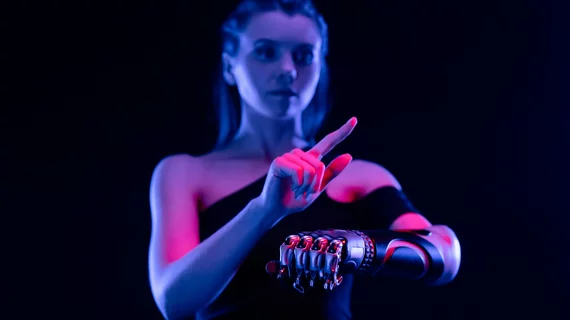Industry Watcher’s Digest
Buzzworthy developments of the past few days.
- Whatever moves the government makes to regulate AI in healthcare, legislators owe it to patients to bring nurses into the discussion. And that’s on the front end, not after the fact. Richard Alan Ridge, PhD, RN, MBA, makes the point in comments offered to the news outlet Stateline. “The value nurses bring to the table in any healthcare discussion is helping policymakers and decision-makers see things from the patient’s point of view,” says Ridge, a nursing prof at the University of Virginia who cut his teeth in the profession with the U.S. Navy. “I wouldn’t want to read something [related to policy] about AI in healthcare and it not have anything to say about nurses.” Article here.
- Down East, clinical researchers are working on a project whose name tips its aim. Called HEART for Healthcare Enabled by AI in Real Time, the work brings together experts from MaineHealth and Northeastern University’s Roux Institute in Portland. The team’s clinical goals are twofold: a.) better identify cardiac arrest patients at risk of serious complications and b.) prevent adverse events while these patients are recovering from heart surgery. “Physicians are always going to be at the tip of the spear, holding the fundamental responsibility for helping patients and families make healthcare decisions,” Roux Institute data scientist Raimond Winslow, PhD, tells Mainebiz. With real-time AI, he adds, “we’re giving them new information and new insights.”
- Lots of people could use an AI helper that separates trustworthy health news from hackery, quackery and the occasional bit of outright fakery. It’s with them in mind that University of New Hampshire researchers have developed one of those. Details here.
- A team assembled at NYU Langone Health is designing GenAI chatbots to counter diabetes. The tool texts patients words of encouragement to eat healthy and get exercise. The developers went to considerable lengths to ensure the messages have the ring of a real doctor’s or nurse’s voice to them. A big part of this was getting MDs and RNs to work closely with GenAI-agile software engineers. If the approach proves effective at scale, population health researcher Danissa Rodriguez, PhD, tells NYU Langone’s news division, “it could revolutionize healthcare software design.”
- ‘It’s an exciting time to be an AI researcher.’ So says an AI researcher—one who’s in on the opening of a new healthcare AI center at a major academic medical institution. “The methodologies have advanced to the point where we can rapidly reconfigure AI to support scientific investigation in just about any biomedical domain,” notes the researcher, Bradley Malin, PhD, of Vanderbilt University Medical Center in Nashville. Malin’s co-director at the center, Peter Embí, MD, adds: “We aim to accelerate discoveries, transform healthcare delivery, improve patient outcomes and ultimately save lives.” Opening announcement here.
- Never mind AI’s power to take over the world. What should really terrify people is its potential to destroy our chances of a sustainable future. So contends journalist/activist/teacher Liza Featherstone. “AI is not only robbing us of our livelihoods and depriving our lives of meaning,” she writes in commentary published March 5 in The New Republic. “It puts our planet and its people under existential threat, for no good reason.” Featherstone breaks down her main beef into AI’s need for more water, energy, critical minerals and e-waste space than any set of benefits could possibly justify. Hear her out here.
- The rise of artificial general intelligence—AGI—is not only inevitable but also increasingly imminent. That’s the belief of the mathematician/computer scientist who’s often credited with coining the term AGI. “To me it seems quite plausible we could get to human-level AGI within, let’s say, the next three to eight years,” the thought-provoking thinker, Ben Goertzel, PhD, told an audience at an AGI conference March 1. Goertzel, CEO of SingularityNet, is probably best known for his brainchild Sophia the Robot. Sophia is the first robot ever to be granted legal citizenship (in Saudi Arabia) and the first nonhuman to win recognition from the United Nations (which named the droid its Innovation Champion in 2017). At the March 1 event, Goertzel added: “My own view is that, once you get to human-level AGI, within a few years you could get a radically superhuman AGI.” DailyMail.com has more.

